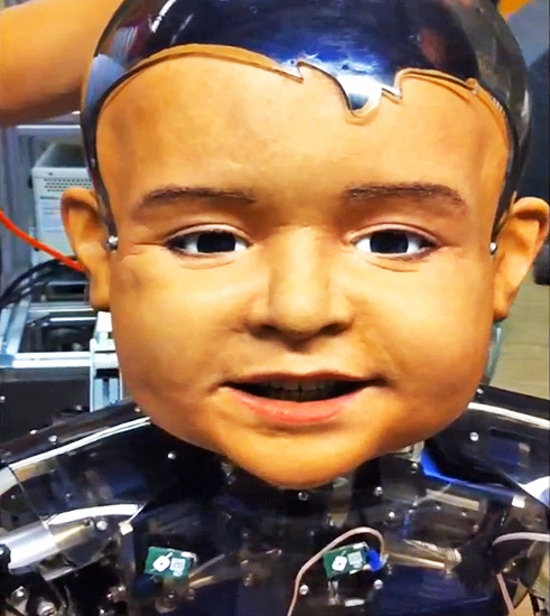Eugenics has always been such a horrible thing–a Nazi thing!–hardly anyone wanted to think about, let alone speak its name. But what if the technologies have changed so much that eugenics isn’t a brutal thing about death but a noble one about a better life? How can we ignore it then?
In the torrent of recent stories about the CRISPR-Cas9 gene-editing tool, it’s become clear that we’re at the dawn of new possibilities to eliminate diseases, and, yes, enhance humans who aren’t ailing in any traditional sense.
In Jennifer Kahn’s New York Times Magazine piece, a scientist says, “There’s an almost frantic feeling of discovery. Crispr has made so many experiments possible.” With those possibilities come responsibilities, of course, but part of that burden will be to throw off entrenched beliefs and see the world anew.
Some of the thorniest questions may be asked of parents, who’ll have wade into that sci-fi-ish territory known as designer babies. From Erik Parens’ Aeon article “Made to Order“:
If a technology such as CRISPR-Cas9 could be used to safely and effectively treat diseases or create what some see as improvements in future generations, we would have to face the question we didn’t need to face back in 1990 when the Human Genome Project was getting off the ground. Even if it won’t be possible to use this technology to alter the sorts of hugely complex traits – say, intelligence – that are envisioned in sci-fi movies such as Gattaca (1997), it might be possible to use it to edit out some disease traits, especially rare ones that result from mutations in single genes. More ambitiously, perhaps it could be used to edit in some enhancements such as muscles of greater strength or bones of greater length. Whatever the traits, once the fig leaves of safety and efficacy fall away and we have a technology that can alter the traits of future generations, the naked ethical question stares back at us: is eugenics, really, inherently bad?
That seemingly simple question takes us to the heart of a deep tension that decent parents have felt for a very long time, but that will become ever more intense if a technology such as CRISPR-Cas9 is in fact safe and effective. I refer here to the tension between the ethical obligation of parents to accept their children as they are, and their ethical obligation to shape them. This technology could become yet one more site of cultural polarisation – a high-tech variation on the already high-pitched debate between ‘Tiger Moms’, who are whole-heartedly committed to shaping their children, and ‘Elephant Moms’, who are equally whole-heartedly committed to letting their children unfold in their own ways. (The more accurate formulation would be between Tiger and Elephant Parents, but that isn’t the one being deployed today.) On the other hand, and far more optimistically, this technology could create the opportunity to sustain – as opposed to resolve – the enormous tension between the obligations to shaping and accepting.
Grasping the nature of this tension in the context of embryo editing forces us to revisit the question, ‘Is eugenics inherently bad?’ It forces us to see why it won’t be enough to assert, ‘You can’t do that, it’s eugenics!’ — and why we need to distinguish between good and bad eugenic practices. That will not be an easy distinction, and attempting to make it may be fraught with social danger. Nonetheless, we need to start along that path if we want to face the future with intellectual and ethical integrity.•

